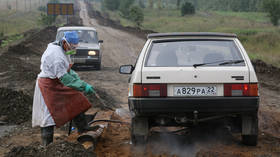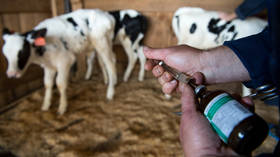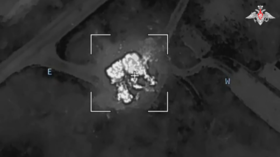Two people infected with Anthrax in Russia

Two people have contracted the dangerous bacterial infection Anthrax in Russia’s Republic of Chuvashia, about 430 miles east of Moscow, it was announced on Wednesday.
The republic's Governor Oleg Nikolaev relayed the news on Telegram that the patients have been hospitalized with confirmed diagnoses and are currently receiving the necessary treatment.
Medics in charge describe the conditions of the two infected persons as “moderate,” Nikolaev said, adding that their lives were out of danger.
All persons who have had contact with the Anthrax patients have also been put under medical supervision and provided with preventive treatment, the governor also reported.
Chuvashia’s consumer-rights protection service, veterinary service and the country's Interior Ministry are working together to prevent the further spread of the infection, he wrote.
“The main goal is to ensure the safety of the residents of our region, and it’ll be achieved,” he assured Telegram readers.
The Chuvash Republic, with a population of 1.2 million, is located in the central part of European Russia on the banks of the Volga River. The distance between its regional capital Cheboksary and Moscow is around 700 kilometers (around 435 miles).
The last case of Anthrax, which is also called ‘Siberian Plague,’ was reported in Russia in June 2022 in the southern Stavropol region. The spread of the infection was swiftly contained by the local authorities.
Anthrax is a serious infectious disease caused by the Bacillus anthracis bacteria, which is sometimes encountered in rural areas and most commonly affects livestock. Humans may catch it from animals, typically from infected carcasses, as well as from wool, hair and hides.
The disease can occur in the skin, lungs, and intestines. Respiratory anthrax is the most dangerous, having a mortality rate of from 50% to 80% even with treatment, according to the US Centers for Disease Control and Prevention. However, the most common is the skin form of the disease, which is lethal in less than 24% of cases without treatment.
Hundreds of thousands of people died of anthrax before 20th-century scientific advances, but the number of cases has been reduced greatly due to the use of antibiotics to treat patients, and to the vaccination of animals.














